
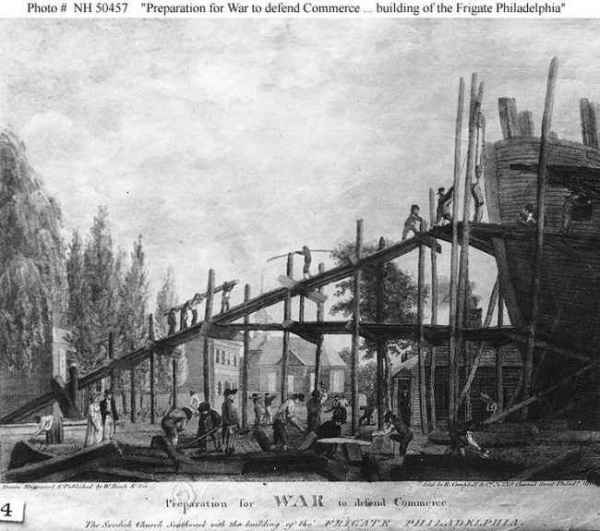
1794 Countdown to Infamy: The Act to Provide a Naval Armament, also known as the Naval Act, is passed by the United States Congress. The Act provides for the construction of four ships to carry forty-four guns each, and two ships to carry thirty-six guns each.
[See: Countdown to Infamy: Timeline to Pearl Harbor.]1871 Birth: Heinrich Mann:
[Heinrich Mann] wrote German novels with social themes whose attacks on the authoritarian and increasingly militaristic nature of post-Weimar German society led to his exile in 1933. He was born in Luebeck as the oldest child of Thomas Johann Heinrich Mann and his wife Julia da Silva-Bruhns and was the elder brother of Thomas Mann. His father came from a patrician grain merchant family and was a Senator of the Hanseatic city. After the death of his father, his mother moved the family to Munich, where Heinrich began his career as a freier Schriftsteller. His essay on Zola and the novel Der Untertan earned him much respect during the Weimar Republic, since it satirized German society and explained how its political system had led to the First World War. Eventually, his book Professor Unrat was turned into the successful movie Der Blaue Engel (The Blue Angel).Carl Zuckmayer wrote the script, Josef von Sternberg was the director. Marlene Dietrich played her first major role in it (as Lola). Together with Albert Einstein and other celebrities, Mann was a signatory to a letter to the International League of Human Rights condemning the murder of Croatian scholar Dr Milan Sufflay on February 18, 1931. He became a persona non grata in Nazi Germany and eventually made his was to Marseille in Vichy, France. There, he was aided to escape to Spain, and eventually the United States by Varian Fry in 1940. During the 1930's and later in American exile, his literary career went downhill, and eventually he died in Santa Monica, California, lonely and without much money, just months before he was to move to Soviet-occupied Germany to become president of the Prussian Academy of Arts. His ashes were later taken to East Germany.
1901 Birth: Erich Ollenhauer: German politician, SPD. Ollenhauer joined the SPD in 1920. When the Nazis took power in 1933 he fled Germany for Prague. After the outbreak of World War II Ollenhauer traveled across Europe in order to avoid Nazi persecution, first finding himself in Denmark, then France, Spain, Portugal, and eventually London, where he remained until the end of the war.
1912 Japanese cherry trees planted along the Potomac:

In Washington, D.C., Helen Taft, wife of President William Taft, and the Viscountess Chinda, wife of the Japanese ambassador, plant two Yoshina cherry trees on the northern bank of the Potomac River, near the Jefferson Memorial. The event was held in celebration of a gift, by the Japanese government, of 3,020 cherry trees to the U.S. government. [For further details, Click here]
1916 World War I: Gefreiter Adolf Hitler endures trench warfare in Flanders (Artois) with 3 Company, 16 Reserve Infantry Regiment [List Regiment]. [For further details, Click here.]
1918 World War I: Various:
Moldova and Bessarabia annexed to Romania:
On March 27, 1918, in the wake of Russia's withdrawal from World War I and its acceptance of the humiliating peace terms set by the Central Powers at Brest-Litovsk, the Balkan republic of Romania annexes Bessarabia, a strategically important area of land located on its eastern border and bounded on the south by the Danube River and the mouth of the Black Sea.
Ruled by Ottoman Turks from the 16th century, Bessarabia (which today corresponds to the republic of Moldova and part of Ukraine) was annexed by the Russians in 1812 as a result of the Russo-Turkish War. The collapse of the Russian empire and the triumph of Bolshevism in 1917 inspired new stirrings of nationalism in Bessarabia, particularly among its large populations of Romanians and Ukrainians.
Despite its historical alliance with the Central Powers, especially Austria-Hungary, Romania had entered World War I on the side of the Allies in August 1916 with the hope of winning Transylvania, then part of Hungary, and expanding its strength in the Balkans. Within six months, however, Austro-German and Bulgarian forces had crushed Romania, effectively overrunning most of the country and ending its participation in the war by early 1917. (It signed a treaty with the Central Powers on May 7, 1918.) With the fall of the Russian empire, however, Romania saw its chance to reestablish its claims over Bessarabia.
For its part, Ukraine saw the end of czarist Russia as an opportunity. Immediately following the overthrow of the czar in February 1917, Ukraine set up a provisional government and proclaimed itself a republic within the structure of a federated Russia. In January 1918, it declared its complete independence. The Ukrainian government immediately sought control of Bessarabia, or at least its northernmost and southernmost sections, where the majority of the population was Ukrainian.
In January 1918, Romania sent troops to Bessarabia; on March 27, after Russia formally exited the war in early March at Brest-Litovsk, it annexed the region. Ukraine's national council strongly protested, urging self-determination for the Ukrainian population of Bessarabia. Over the next year, however, turmoil and ultimately civil war in Ukraine made taking any decisive action impossible. On November 10, a day before the armistice ending World War I was signed—and with an Allied victory assured—Romania reentered the war, occupying Transylvania.
At the Versailles peace conference in 1919, the Romanian delegation, headed by Prime Minister Ion Bratianu, included Bessarabia in a long list of territorial demands that also included the former Austro-Hungarian properties of Transylvania and the Bukovina and Banat regions, all of which they claimed were historically and ethnically Romanian. Though the Supreme Council at Versailles—made up of the leaders of Britain, France, the U.S., Italy and Japan—found Romania's demands excessive, they eventually gave in on most counts, including cession of Bessarabia. Thus, in the post-war period, Romania's size and population nearly doubled, making it by far the greatest winner of territory to come out of World War I.
Neither the new Union of Soviet Socialist Republics (USSR) nor its member republic, Ukraine—which fell to the Bolsheviks in 1919—accepted Romanian control of Bessarabia. During World War II, Bessarabia was occupied by Soviet troops in June 1940, retaken by Romania a year later, and then reoccupied by the Soviets in 1944. After the war ended, the majority of Bessarabia was joined to the soviet republic of Moldavia; the northernmost area and the coastal strip to the south along the Black Sea became part of Ukraine. With the collapse of the Soviet Union in 1991, Moldavia changed its name to Moldova and, along with Ukraine, joined the Commonwealth of Independent States (CIS), an association of 12 former republics of the USSR. (History.com)
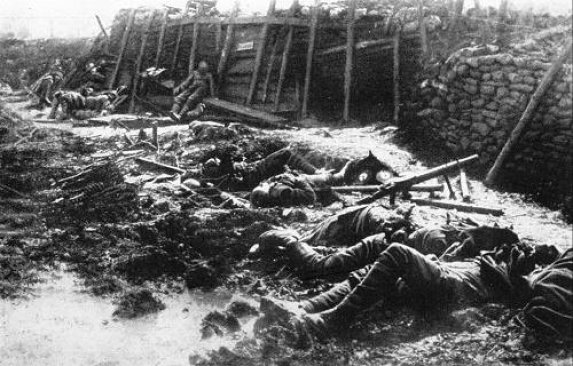
Volkishness: A Germanenorden newsletter states that the articles of the Order had been formulated after discussions with Karl August Hellwig of the Armanenschaft. The ritual is also ascribed to Armanenschaft ceremony, but the suggestion that brothers of the higher grades in the Germanenorden be called Armanen was said to have been vetoed by the Armanenschaft. (THP)
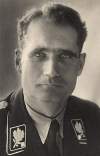
Rudolf Hess—after a long convalescence—volunteers for service as a fighter pilot. (THP)
1924 Various:
Romanian-Russian negotiations begin in Vienna after strong pressure from the French.
Weimar: Hitler addresses the court during his trial for the Munich Putsch:
When did the ruin of Germany begin? You know the watchword of the old German system in its foreign policy: it ran: maintenance of world peace, economic conquest of the world. With both these principles one cannot govern a people. The maintenance of world peace cannot be the purpose and aim of the policy of a State. The increase and maintenance of a people: that alone can be the aim. If you are going to conquer the world by an economic policy, other peoples will not fail to see their danger.
1933 Various:
Countdown to Infamy: After being found guilty of aggression in Manchuria, Japan announces it will leave the League of Nations.
Max Warburg writes a letter assuring Harriman and his associates at Brown Brothers Harriman that the Hitler government is good for Germany. "I feel perfectly convinced that there is no cause for any alarm whatsoever," Warburg concludes. (THP)
USA: The American Jewish Congress sponsors a mass anti-Nazi demonstration in New York City.
1934 The Blutorden (Blood Order) medal is instituted by the Nazi party. Originally named "The Sign of Honor for November 9, 1923" it is awarded only to veterans of the Munich Putsch. It will later be presented to a very select few for outstanding personal achievement.
1941 World War II: Various:
Serbia: Nazi agencies are wrecked by the people. German tourists and colonists leave the country.
North Africa: In Libya, German motorized divisions reinforce the Italians. Conquest of Italian East Africa is practically completed by the British. [See: The Mediterranean Strategy.]
Lend-Lease: FDR's $7,000,000,000 appropriations bill is approved by Congress as Britain leases defense bases in Trinidad to the United States for 99 years. [See: Why Did the US Join the Fight Against Hitler?]
Church and Reich: Dietrich Bonhoeffer is forbidden to print or publish:

Over the past 50 years, many Christians have been engaged in the process of re-examining the role of the Church in Germany during the Nazi era. What has become evident in this undertaking is the depth of the chasm between the ideals the Church had always set for itself and the way it responded to the brutalization of the German government under Adolf Hitler. Dietrich Bonhoeffer was one of the few church leaders who stood in courageous opposition to the Fuehrer and his policies. [For further details, Click here.]
Countdown to Infamy: Tokeo Yoshikawa arrives in Oahu, Hawaii, to begin spying for Japan on the US fleet at Pearl Harbor.
Yugoslavia: A popular revolt forces the resignation of Regent Prince Paul's Government. Cvetkovich's government is overthrown by the Yugoslav military. Mussolini's ambitions for Croatia and other Yugoslavian territories and British intrigues in Belgrade lead to a coup by General Dusan Simovitch, resulting in the overthrow of the pro-Nazi regime of Prince Paul and the beginning of hostilities with Germany. Prince Paul is replaced by his heir, 17-year-old King Peter. (THP)
1942 Various:
Volkishness: The Lumenclub and the Order of the New Templars (ONT) in Austria are said to have been suppressed by the Gestapo in accordance with a party edict of December 1938. (THP)
World War II: St. Nazaire: British commandos raid and destroy the Nazi U-boat submarine base. German gunners sink their own ships trying to cut them off as the commandoes escape in fast launches.
Holocaust: Jews from France are deported to Auschwitz. All are foreign-born Jews who had been rounded up seven months earlier, and interned. (THP)
1945 World War II: Various:

Wunderwaffen: Germany launches its last V-2 rocket from the Hague in the Netherlands, crashing in Orpington, southeast of London.
In a last-ditch effort to deploy their remaining V-2 missiles against the Allies, the Germans launch their long-range rockets from their only remaining launch site, in the Netherlands. Almost 200 civilians in England and Belgium were added to the V-2 casualty toll.
On March 27, 1945, taking advantage of their one remaining V-2 launch site, near The Hague, the Germans fired their V-2s for the last time. At 7 a.m., London awoke to a blast-one of the bombs had landed on a block of flats at Valance Road, killing 134 people. Twenty-seven Belgian civilians were killed in Antwerp when another of the rockets landed there. And that afternoon, one more V-2 landed in Kent, England, causing the very last British civilian casualty of the war. [For further details, Click here]
Churchill to FDR:
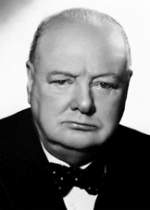
As you know, if we fail altogether to get a satisfactory solution on Poland and are in fact defrauded by Russia both Eden and I are pledged to report the fact openly to the House of Commons. There I advised critics of the Yalta settlement to trust Stalin. If I have to make a statement of facts to the House the whole world will draw the deduction that such advise was wrong; all the more so that our failure in Poland will result in a set-up there on the new Rumanian model. I other words, Eastern Europe will be shown to be excluded from the terms of the Declaration on Liberated Europe, and you and we shall be excluded from any jot of influence in that area. Surely we must not be maneuvered into becoming parties to imposing on Poland‑-and on how much more of Eastern Europe‑-the Russian version of democracy? . . . . There seems to be only one possible alternative to confessing our total failure. That alternative is to stand by our interpretation of the Yalta agreement . . . . I believe therefore that if the success of San Francisco is not to be gravely imperiled we must both of us now make the strongest possible appeal top Stalin about Poland, and if necessary about a any other derogations from the harmony of the Crimea. Only so shall we have any real chance of getting the World Organization established on lines which will commend themselves to our respective public opinions.

Western front: General Dwight Eisenhower declares the German defenses broken.
Argentina declares war on Germany and Japan.
Operation Starvation: the aerial mining of Japan's ports and waterways begins.

Hitler—enraged by the failure of Busse's relief attack—is fuming as Guderian defends Busse's failure, citing the high casualty rate of the failed attack. Keitel proposes that he himself visit the front to determine whether a further relief attack is 'a practical proposition.' (Clark) [See: The Last Days of the Third Reich.]
Goebbels Diary:
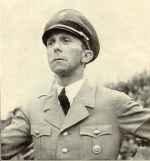
Speer is more of an artist by nature. Admittedly he has great organizational talent but politically he is too inexperienced to be totally reliable in this critical time. The Fuehrer is very angry about recent statements made to him by Speer. Speer has allowed himself to be influenced by his industrialists and is continually saying that he does not intend to lift a finger to cut the German people's lifeline; this is for our enemies to do; he does not intend to take responsibility for it. The Fuehrer counters this by saying that we have to carry the responsibility anyway, that the point now is to bring the struggle for our people's existence to a successful conclusion and that tactical questions play only a subordinate role. The Fuehrer intends to summon Speer during the afternoon and face him with a stern alternative: either he must conform to the principles of present-day conduct of the war or the Fuehrer will dispense with his assistance. He says with much bitterness that he would prefer to live in a prefab or creep underground then have palaces built by a member of his staff who had proved a failure at the moment of crisis. The Fuehrer uses extraordinarily hard words about Speer. I do not think that Speer will have an easy time with him in the next few days. Above all the Fuehrer intends to put an end to Speer's speechifying which is definitely of a defeatist nature.
1946 Nuremberg Tribunal: Testimony of Foreign Office State Secretary Adolf von Steengracht:
Colonel Phillmore (Junior Counsel for the United Kingdom): Witness, you told us yesterday that the Defendant Ribbentrop was against the persecution of the churches, was against the persecution of Jews, and did not know what was going on in the concentration camps. You have told us that he was not a typical Nazi. What are the qualities of a typical Nazi?
Von Steengracht: By a typical National Socialist, I mean a man who fanatically acknowledges and represents all the doctrines of National Socialism. Herr von Ribbentrop, as I said, followed Hitler personally, but he really knew uncommonly little of any of the other ideology and never bothered about it. He never spoke at meetings, never participated in large rallies, and therefore, he really knew extremely little about the people and the mood of the people.
Colonel Phillmore: By 'a typical Nazi,' do you mean someone who was persecuting the churches?
Von Steengracht: I did not understand that question.
Colonel Phillmore: I will repeat it. By 'a typical Nazi,' do you mean a man who was engaged in persecution of the churches?
Von Steengracht: At any rate, someone who, if Adolf Hitler considered it right, did not state his personal opinion on the matter.
1958 USSR: Khruschev becomes Soviet premier:
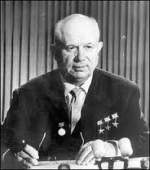
Soviet First Secretary Nikita Khrushchev replaces Nicolay Bulganin as Soviet premier, becoming the first leader since Joseph Stalin to simultaneously hold the USSR's two top offices.
Khrushchev, born into a Ukrainian peasant family in 1894, worked as a mine mechanic before joining the Soviet Communist Party in 1918. In 1929, he went to Moscow and steadily rose in the party ranks and in 1938 was made first secretary of the Ukrainian Communist Party. He became a close associate of Joseph Stalin, the authoritarian leader of the Soviet Union since 1924. In 1953, Stalin died, and Khrushchev grappled with Stalin's chosen successor, Georgy Malenkov, for the position of first secretary of the Communist Party. Khrushchev won the power struggle, and Malenkov was made premier, a more ceremonial post. In 1955, Malenkov was replaced by Bulganin, Khrushchev's hand-picked nominee.
In 1956, Khrushchev denounced Stalin and his totalitarian policies at the 20th Party Congress, leading to a "thaw" in the USSR that saw the release of millions of political prisoners. Almost immediately, the new atmosphere of freedom led to anti-Soviet uprisings in Poland and Hungary. Khrushchev flew to Poland and negotiated a diplomatic solution, but the Hungarian rebellion was crushed by Warsaw Pact troops and tanks.
Khruschev's program of de-Stalinization was opposed by some hard-liners in the Communist Party, and in June 1957 he was nearly ousted from his position as first secretary. After a brief struggle, he secured the removal of Malenkov and the other top party members who had opposed him and in 1958 prepared to take on the post of premier. On March 27, 1958, the Supreme Soviet—the Soviet legislature—voted unanimously to make First Secretary Khrushchev also Soviet premier, thus formally recognizing him as the undisputed leader of the USSR. [For further details, Click here]
Edited by Levi Bookin (Copy editor)
levi.bookin@gmail.com



Click to join 3rdReichStudies



Disclaimer: This site includes diverse and controversial materials--such as excerpts from the writings of racists and anti-Semites--so that its readers can learn the nature and extent of hate and anti-Semitic discourse. It is our sincere belief that only the informed citizen can prevail over the ignorance of Racialist "thought." Far from approving these writings, this site condemns racism in all of its forms and manifestations.
Fair Use Notice: This site may contain copyrighted material the use of which has not always been specifically authorized by the copyright owner. We are making such material available in our efforts to advance understanding of historical, political, human rights, economic, democracy, scientific, environmental, and social justice issues, etc. We believe this constitutes a "fair use" of any such copyrighted material as provided for in section 107 of the US Copyright Law. In accordance with Title 17 U.S.C. Section 107, the material on this site is distributed without profit to those who have expressed a prior interest in receiving the included information for research and educational purposes. If you wish to use copyrighted material from this site for purposes of your own that go beyond 'fair use', you must obtain permission from the copyright owner.
Please Note: The list-owner and the moderator of 3rdReichStudies are not responsible for, and do not necessarily approve of, the random ads placed on our pages by our web server. They are the unfortunate price one pays for a 'free' website.